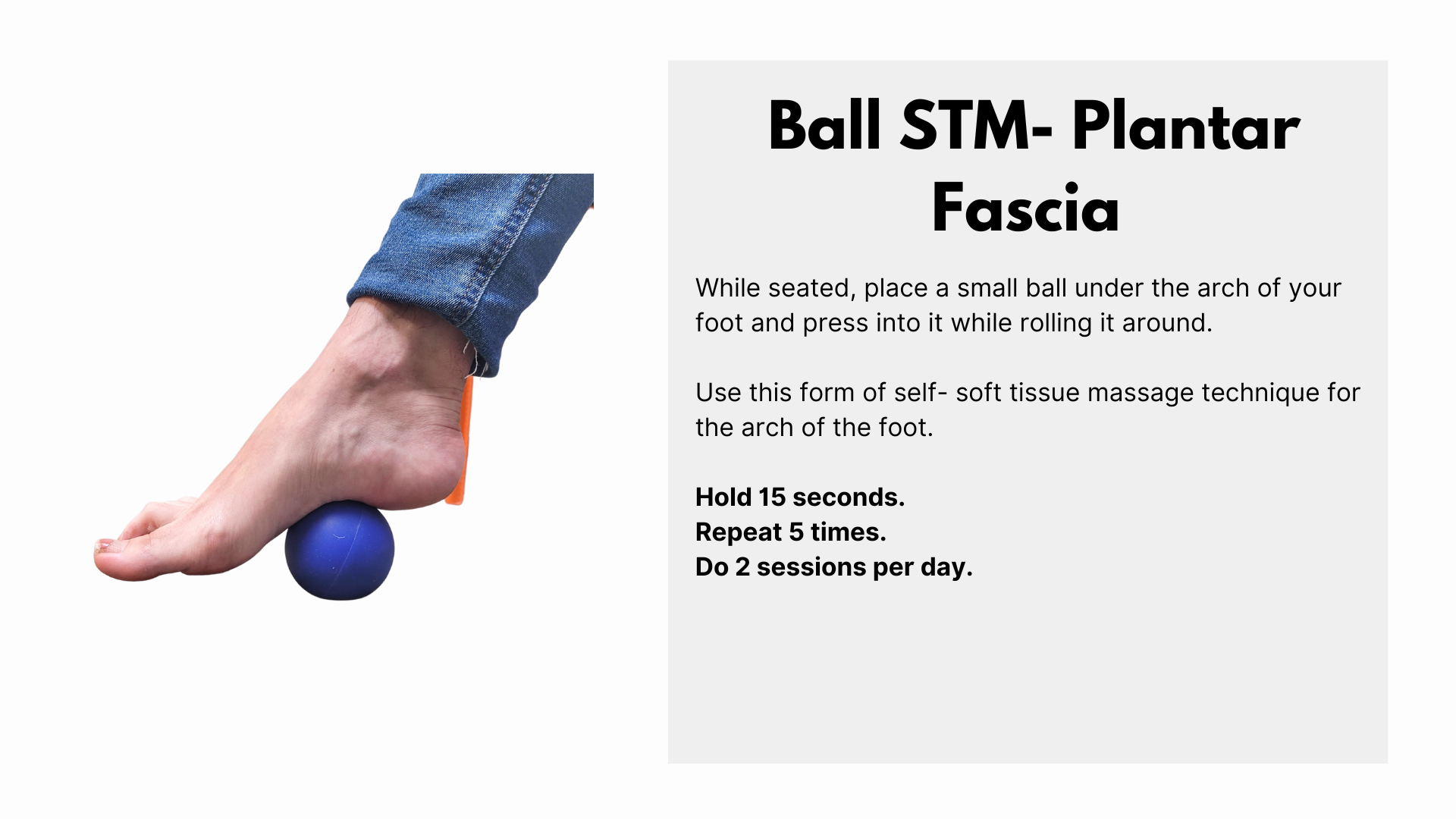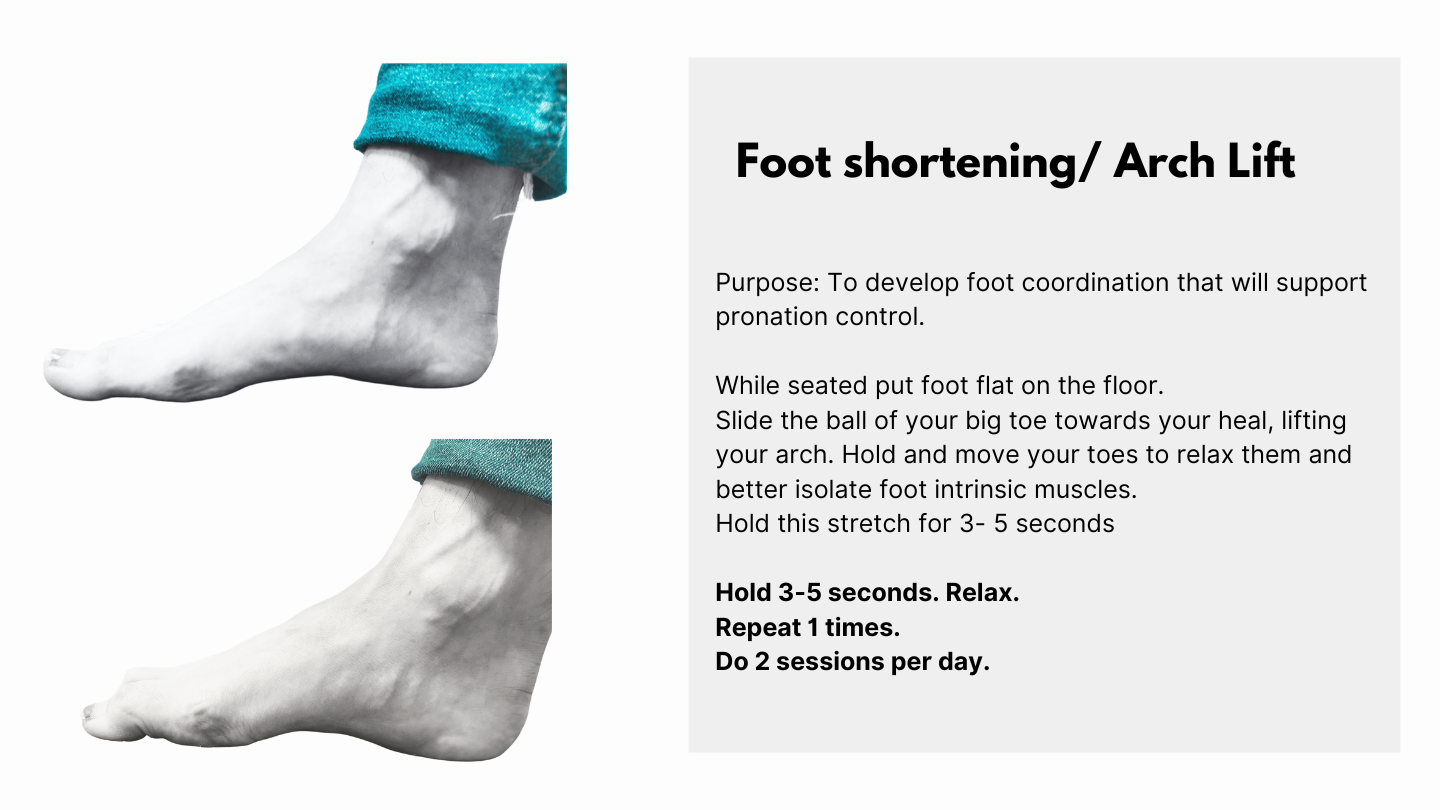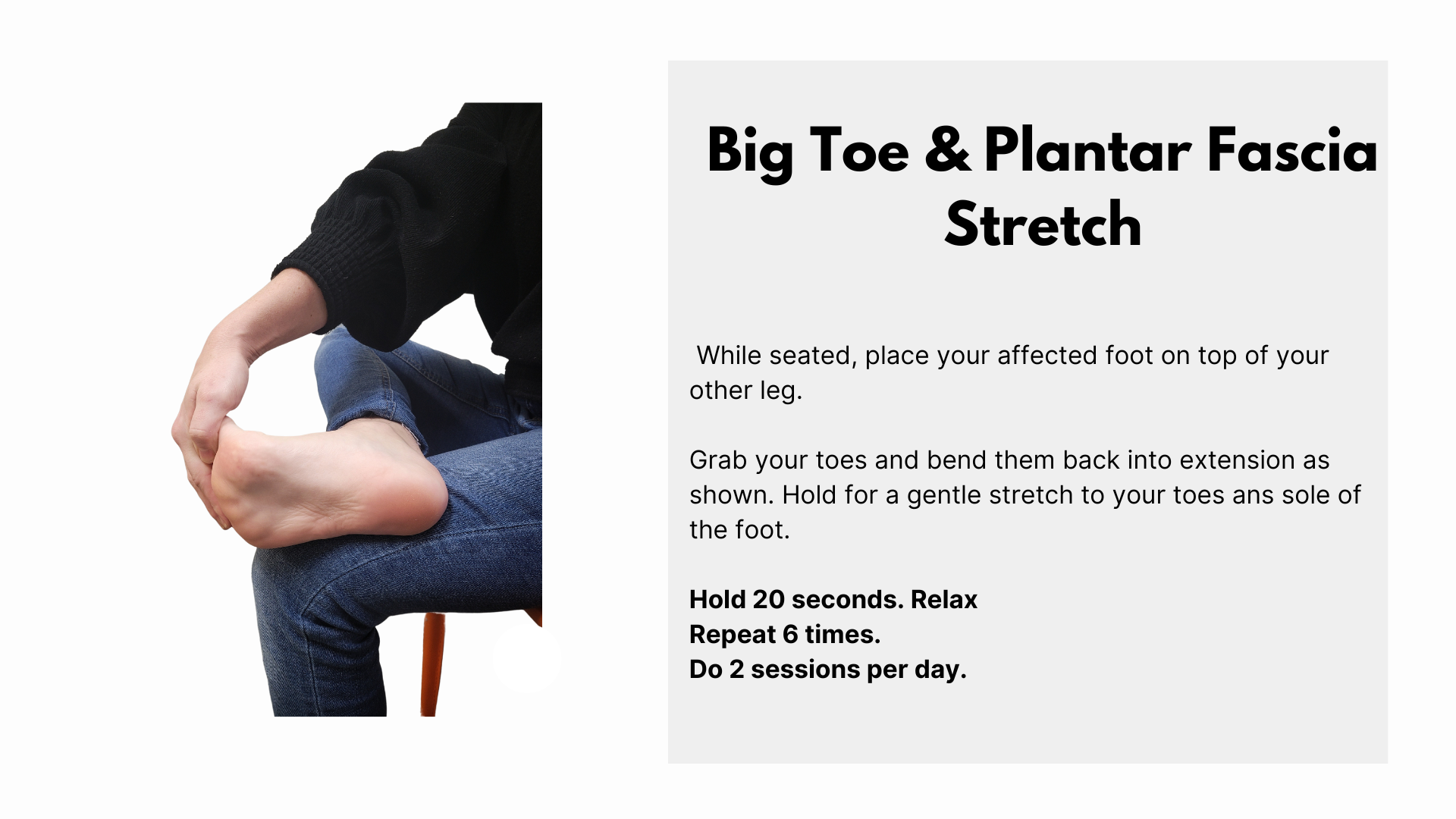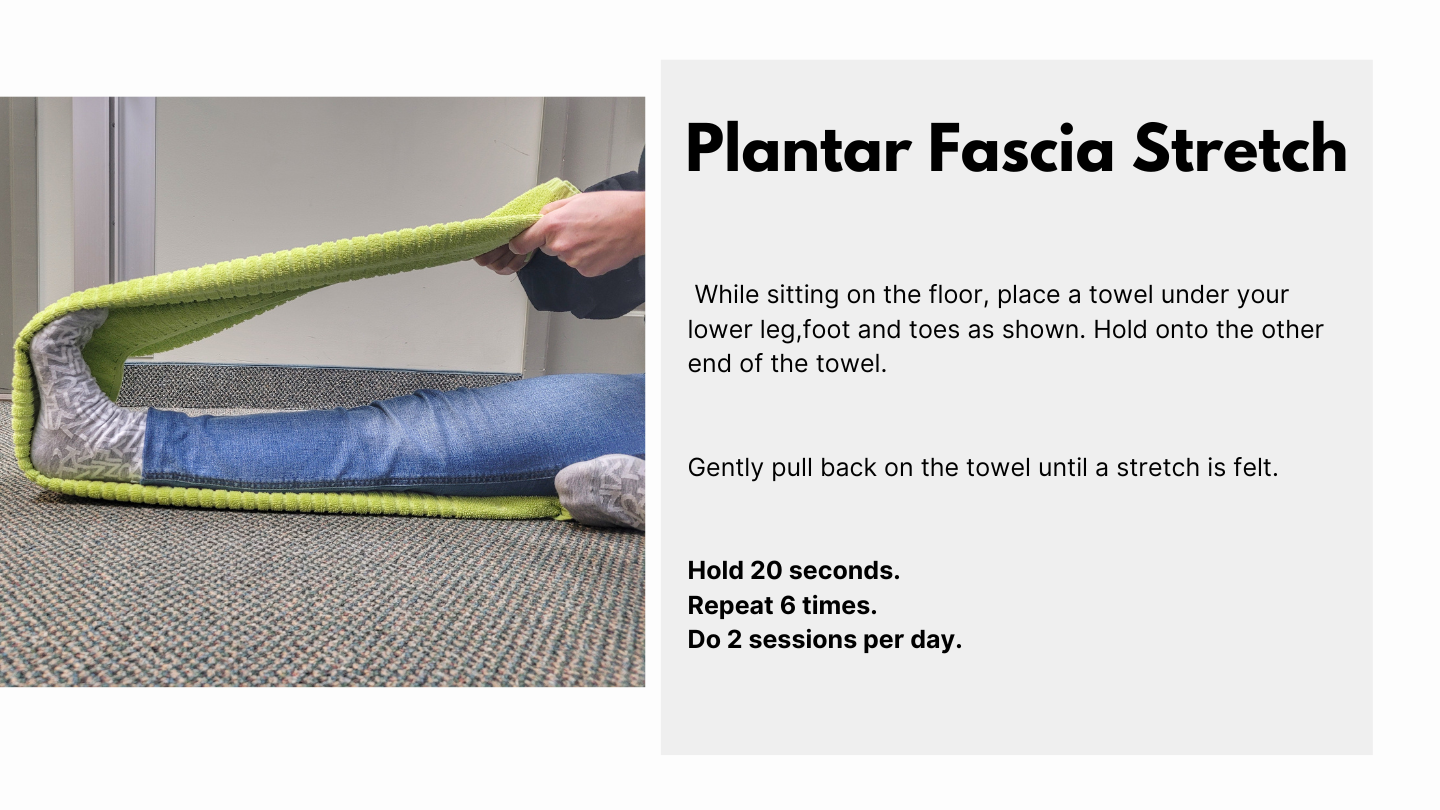Displaying items by tag: foot pain
Plantar Fasciitis Treatment
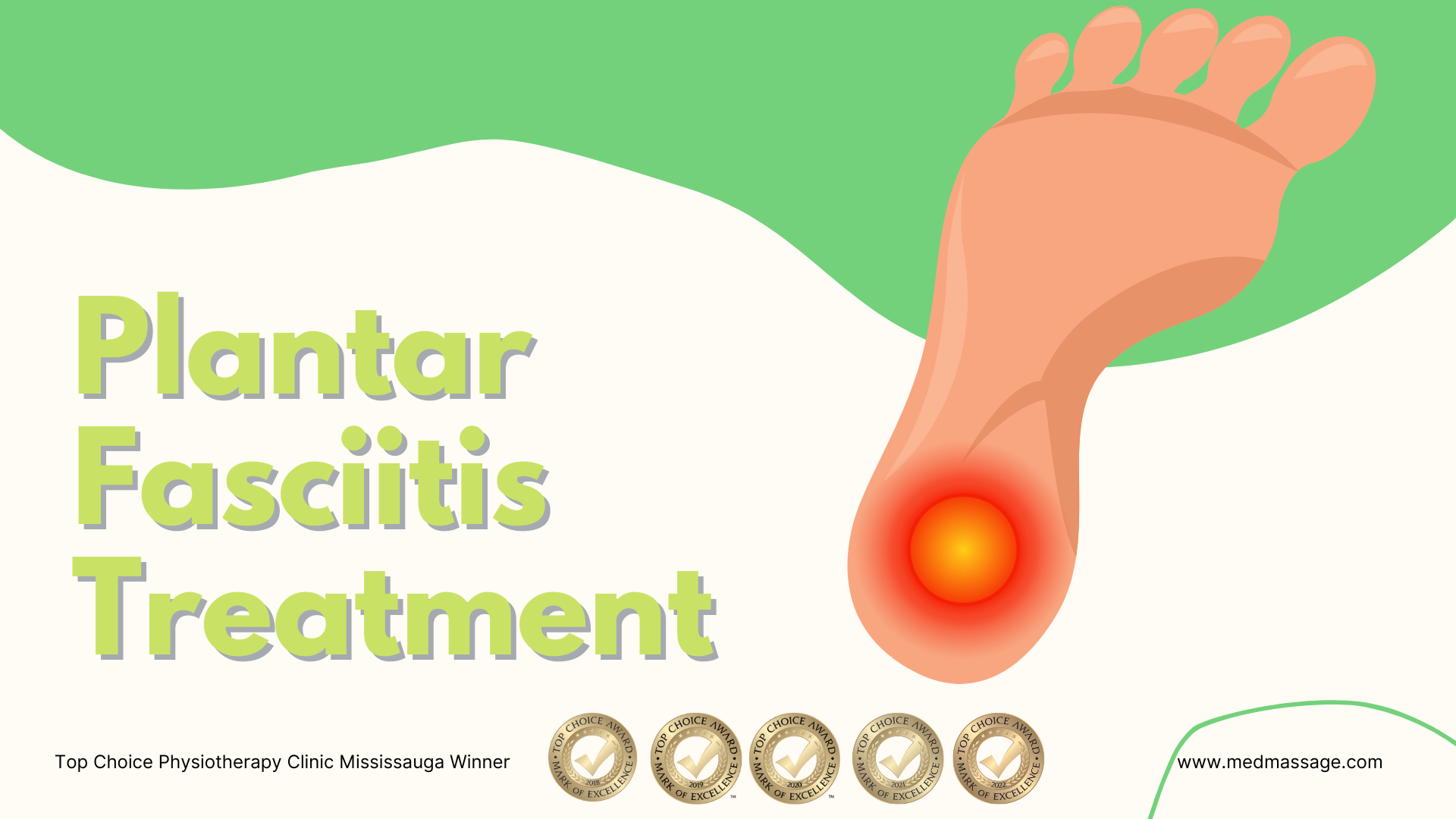
Are you feeling like you've got a rock in your shoe, even when you're not wearing any? Do you dread getting out of bed in the morning because of that sharp pain in your heel? If so, you might be one of the millions of people suffering from plantar fasciitis. Don't worry, though – it's a common condition that can be easily treated with the help of physiotherapy.
So what is plantar fasciitis, anyway? Simply put, it's an inflammation of the plantar fascia, which is the band of tissue that connects your heel bone to your toes. When that tissue gets inflamed, it can cause a lot of pain and discomfort, especially when you're on your feet for long periods of time.
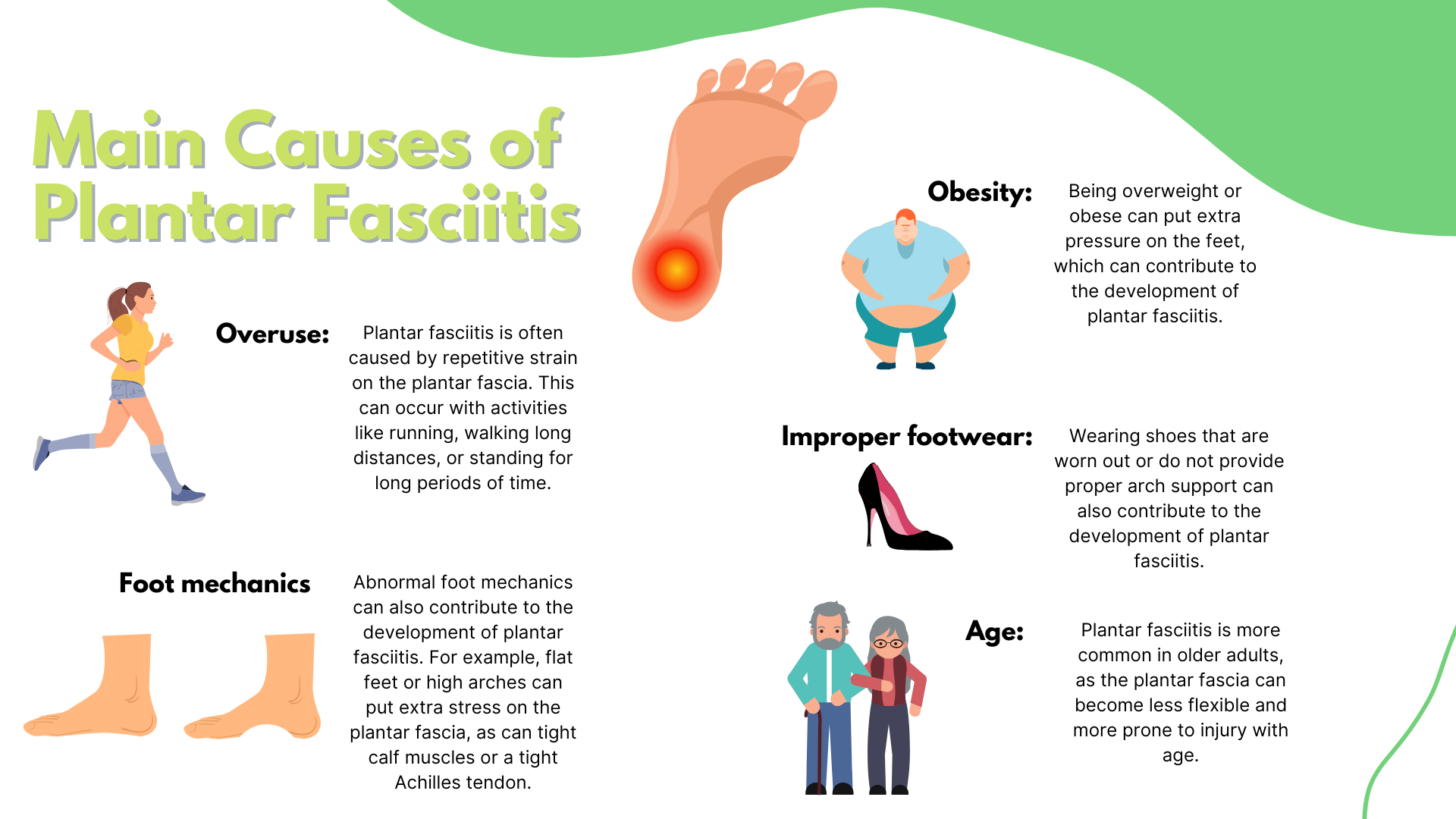
But fear not! There are plenty of ways to treat plantar fasciitis, and physiotherapy is one of the most effective methods. Here are just a few of the ways that physiotherapy can help:
Stretching exercises: One of the key causes of plantar fasciitis is tight calf muscles, which can put extra strain on the plantar fascia. A physiotherapist can help you stretch out those muscles, which can help to relieve some of the pressure on your heel.
Massage therapy: Massaging the affected area can also help to loosen up tight muscles and reduce inflammation. Your physiotherapist may use various techniques, such as deep tissue massage or trigger point therapy, to help ease your pain.
Custom orthotics: If you have flat feet or high arches, your physiotherapist may recommend custom orthotics to help support your feet and reduce the pressure on your heels.
Strength exercises: Building up the strength in your feet and calves can also help to alleviate plantar fasciitis. Your physiotherapist may recommend specific exercises, such as heel raises or toe curls, to help strengthen the muscles in your feet.
Shock wave therapy:In addition to the physiotherapy techniques we've already discussed, shock wave therapy is another treatment option that can be highly effective in treating plantar fasciitis.
So what is shock wave therapy, exactly? It's a non-invasive treatment that uses high-energy sound waves to stimulate the body's natural healing processes. When these sound waves are applied to the affected area, they can increase blood flow and reduce inflammation, which can help to promote healing.
In the case of plantar fasciitis, shock wave therapy has been shown to be particularly effective in relieving pain and improving function. In fact, a recent study found that patients who received shock wave therapy for their plantar fasciitis experienced significant reductions in pain and disability, compared to those who received a placebo treatment.
While the exact mechanism behind shock wave therapy's effectiveness for plantar fasciitis is not yet fully understood, it's thought that the treatment may help to break up scar tissue and stimulate the growth of new tissue in the affected area. This can help to relieve pain, reduce inflammation, and improve overall function.
If you're considering shock wave therapy for your plantar fasciitis, it's important to work with a qualified healthcare professional who can assess your specific needs and determine the best course of treatment for you. But for many patients, shock wave therapy can be a highly effective way to relieve pain and improve their quality of life.
Education and advice: Finally, your physiotherapist can provide you with education and advice on how to manage your symptoms and prevent further injury. They can show you proper techniques for stretching and strengthening your feet, as well as recommend footwear and lifestyle changes to help reduce your risk of developing plantar fasciitis again in the future.
So there you have it – plantar fasciitis may be a pain in the heel, but with the help of a physiotherapist, you can get back on your feet in no time. Don't suffer in silence – book an appointment today and start feeling better!
Exercises for Plantar Fasciitis
Please note that it's important to consult with a healthcare professional before starting any new exercise program, especially if you're experiencing pain or discomfort.
